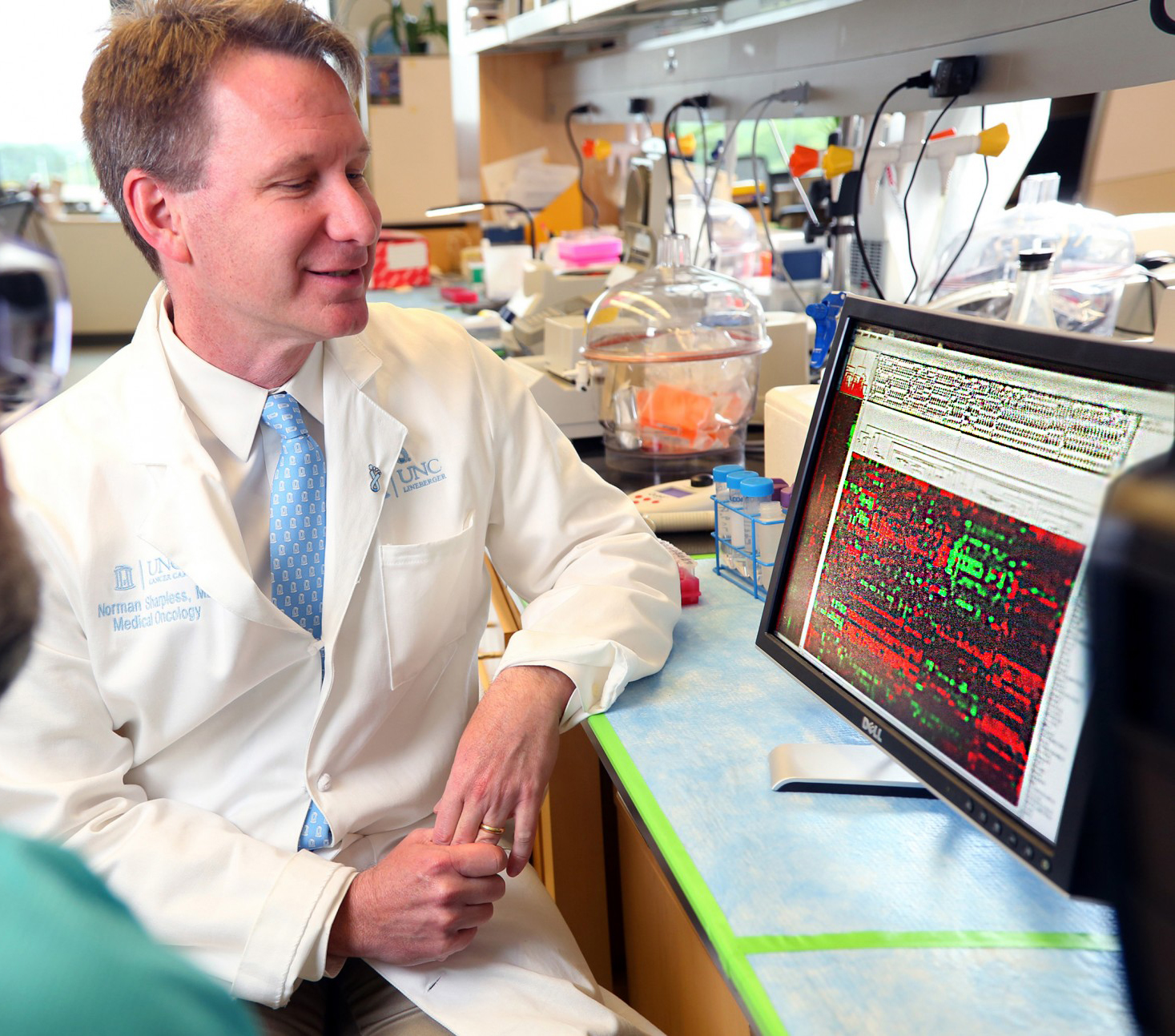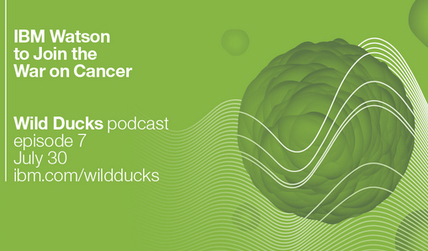Each month, the technology company IBM releases a podcast called “Wild Ducks,” focusing on world-changing people and ideas. For the month of July, IBM came to UNC Lineberger Comprehensive Cancer Center to learn about personalized medicine and meet their newest Wild Duck – Ned Sharpless, MD, UNC Lineberger Director and Wellcome Distinguished Professor in Cancer Research at the UNC School of Medicine.


Titled “IBM Watson to Join the War on Cancer,” the episode focused on using big data – like that produced from the IBM super-computer known as Watson – to deliver highly personalized treatment to people with cancer. Dr. Sharpless is exploring ways in which doctors can use the giant datasets processed by Watson to customize care and recommend the best treatment options for patients.
Sharpless first introduced this idea to the technology community at the World of Watson conference in New York City earlier this year.
“I think it’s very likely that within the next 2-3 years that we’ll see a clinical trial in cancer of drug-picking using a human or a computer-aided human, a Watson-aided human,” he said. “I think that’s a relatively straightforward trial to do. I think it’s likely to happen and I think it’s likely the computer will win—or the human helped by computer will win. The reason I say that is because it’s very hard to do. The data are complicated and complex and we need help.”
After hearing Sharpless speak, Wild Ducks producers Jeffrey O’Brien and Bernhard Warner were compelled to come to Chapel Hill to hear more. First, Sharpless helped the producers explain to listeners how the top oncologists currently recommend treatment, sans computer.
“A group of expert doctors called the tumor board convenes once a week to study the case files of as many as 20 patients who have exhausted all obvious treatments and don’t have a clear path to recovery. Despite all their collective expertise, the board typically generates recommendations for only about half of the cases.”
They then discussed how the addition of a mega-computer like Watson could greatly improve treatment, saving time and saving lives. Sharpless and his team are training Watson to recommend treatment options to patients who are not responding well to the standard course of treatment. During that training process, Watson will be learning which drug regimens have worked best for various types and stages of cancers, with detailed insights down to the DNA level. Once the team has made sufficient progress in Watson’s training, it will be time to enroll actual patients in a clinical trial.
“The trial that one could envision in this area is take patients and assign them to the therapy the old way,” said Sharpless. “Doctors doing their best, the molecular tumor board making recommendations, versus the new way, which is the same group of doctors doing their best, but now they have help with Watson.”
At the end, Sharpless says, the goal is to have an algorithm that recommends, using genetic information – DNA and RNA – to make recommendations about what therapy is best for a certain individual. “That’s the goal,” he told Wild Ducks. “But I think very doable.”
